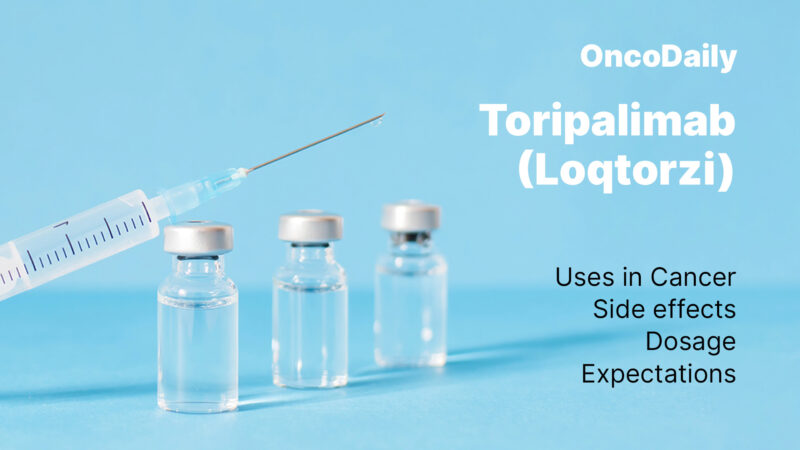Pancreatic cancer remains one of the deadliest malignancies, with limited benefit from conventional immunotherapy. In 2025, several early-phase studies are testing personalized tumor vaccines—including mRNA-based, neoantigen-targeted, and KRAS-directed platforms—often in combination with checkpoint inhibitors and chemotherapy.
These trials, conducted across leading centers in China and the United States, aim to overcome the immune-cold nature of pancreatic tumors by inducing durable, tumor-specific T-cell responses. Together, they represent a major step toward personalized vaccine-driven immunotherapy in pancreatic cancer.
mRNA and Neoantigen-Based Vaccine Trials
This group of trials focuses on mRNA and neoantigen vaccines designed to stimulate patient-specific immune responses against pancreatic cancer. These studies combine personalized vaccination with immune checkpoint inhibitors and standard chemotherapy to improve long-term disease control following surgery or in advanced stages.
Study of Neoantigen mRNA Vaccines in Resectable Pancreatic Cancer
Phase: Early Phase 1
Study Type: Interventional, open-label
Location: Jinling Hospital, Nanjing, China
Study ID: NCT06326736
This exploratory early-phase trial evaluates the safety and preliminary efficacy of combining surgical resection, camrelizumab (anti–PD-1), and a personalized neoantigen mRNA vaccine (SJ-Neo006) followed by Gemcitabine + Abraxane chemotherapy in patients with resectable pancreatic ductal adenocarcinoma.
The treatment sequence aims to trigger durable immune surveillance by using surgery to obtain tumor tissue for neoantigen identification, followed by checkpoint blockade and vaccination to expand tumor-specific T-cell responses, and adjuvant chemotherapy to minimize residual disease.
Key Objectives
- Assess safety and tolerability of SJ-Neo006 combined with camrelizumab and chemotherapy.
- Evaluate immune responses and early efficacy endpoints such as recurrence-free survival.
- Explore feasibility of individualized mRNA vaccine production for pancreatic cancer patients in China.
The trial started in April 2024, with estimated primary completion in December 2025 and final completion by December 2026.

You can also read about BRAF-Mutant Colorectal Cancer Active and Recruiting Trials You Need to Know in 2025 on OncoDaily.
Personalized Tumor Vaccines and Pembrolizumab in Advanced Pancreatic Cancer
Phase: Early Phase 1
Study Type: Interventional, open-label
Location: Ruijin Hospital, Shanghai, China
Study ID: NCT05916261
This early-phase clinical trial investigates the personalized mRNA-0217/S001 tumor vaccine, designed to encode patient-specific neoantigens, either as monotherapy or in combination with the anti–PD-1 antibody pembrolizumab, in patients with advanced pancreatic cancer. Conducted at Ruijin Hospital, this study reflects growing efforts to harness precision immunotherapy through individualized vaccine design for hard-to-treat malignancies.
The mRNA-0217/S001 vaccine is generated based on each patient’s unique tumor neoantigen profile identified through next-generation sequencing. By encoding multiple neoantigenic epitopes, the vaccine aims to elicit strong CD4⁺ and CD8⁺ T-cell immune responses, enhancing recognition and destruction of tumor cells that have otherwise evaded immune detection. Pembrolizumab is added to overcome tumor-induced immune suppression and sustain activated T-cell function.
Key Objectives
- Primary Objective: Evaluate the safety and tolerability of mRNA-0217/S001 vaccine administered alone or in combination with pembrolizumab in patients with advanced pancreatic cancer.
- Secondary Objectives: Assess the immunogenicity of the vaccine by monitoring neoantigen-specific CD4⁺ and CD8⁺ T-cell responses, and evaluate early signals of efficacy, including objective response rate (ORR), disease control rate (DCR), progression-free survival (PFS), and overall survival (OS).
The study began in April 2023 and is expected to complete in December 2026, with primary endpoint analysis scheduled for November 2026. This trial represents one of the most advanced efforts in China to test mRNA-based personalized vaccines against pancreatic ductal adenocarcinoma, a cancer characterized by a highly immunosuppressive microenvironment. By pairing patient-tailored vaccination with immune checkpoint blockade, researchers aim to convert an otherwise “cold” tumor type into one capable of mounting a durable anti-tumor immune response.
XH001 Neoantigen Cancer Vaccine With Immunotherapy and Chemotherapy After Surgery in Pancreatic Cancer
Phase: Not Applicable
Study Type: Interventional, single-arm, open-label
Location: Peking Union Medical College Hospital, Beijing, China
Study ID: NCT06353646
This investigator-initiated study evaluates XH001, a personalized neoantigen cancer vaccine, administered sequentially with immune checkpoint inhibitors and chemotherapy as adjuvant therapy for patients with resected pancreatic cancer. Conducted at Peking Union Medical College Hospital, the trial aims to enhance postoperative immune surveillance and reduce recurrence risk in this high-relapse disease.
Following surgical resection, patients receive the XH001 vaccine, followed by ipilimumab (CTLA-4 inhibitor) and sintilimab (PD-1 inhibitor) in combination with standard adjuvant chemotherapy. This multimodal regimen is designed to prime tumor-specific T-cell responses through vaccination while maintaining immune activation via checkpoint blockade and cytotoxic therapy.
Key Objectives
- Evaluate the efficacy and safety of sequential XH001, checkpoint inhibition, and chemotherapy as adjuvant therapy.
- Assess immune activation, recurrence-free survival, and overall survival.
- Explore biomarkers predictive of neoantigen-specific response.
The study began in March 2024 and is expected to complete in December 2026. If successful, this trial may establish a foundation for integrating personalized neoantigen vaccines into multimodal adjuvant therapy for resected pancreatic cancer.
Neoantigen Vaccine Plus Anti–PD-1 and Chemotherapy as Adjuvant Therapy in Resected Pancreatic Cancer
Phase: I
Study Type: Interventional, single-arm, open-label
Location: Sichuan University, China
Study ID: NCT06344156
This Phase I study explores a personalized neoantigen vaccine combined with anti–PD-1 therapy and chemotherapyas adjuvant treatment for resected pancreatic cancer. The trial aims to enhance postoperative immune surveillance and reduce recurrence risk through a multimodal approach integrating tumor-specific vaccination, checkpoint inhibition, and cytotoxic therapy.
Key Objectives
- Evaluate the safety and feasibility of the regimen.
- Assess recurrence-free and overall survival.
- Monitor neoantigen-specific immune responses.
The study began in April 2024 and is expected to complete in April 2027. This trial underscores the growing interest in neoantigen-based adjuvant immunotherapy for pancreatic cancer.

Find information about KRAS Mutant Colorectal Cancer Active and Recruiting Trials You Need to Know in 2025 on OncoDaily.
mRNA Vaccine Plus PD-1 Inhibitor as Adjuvant Therapy After Pancreatic Cancer Surgery
Phase: Early Phase 1
Study Type: Interventional, single-arm, open-label
Location: Ruijin Hospital, Shanghai, China
Study ID: NCT06496373
This early-phase study assesses the safety and tolerability of XP-004, a personalized mRNA vaccine encoding tumor neoantigens, in combination with a PD-1 inhibitor as adjuvant therapy for chemotherapy-intolerant patients following radical resection of pancreatic cancer.
The vaccine is designed to induce antigen-specific CD4⁺ and CD8⁺ T-cell activation, while PD-1 blockade sustains immune engagement against residual tumor cells.
Key Objectives
- Evaluate safety and feasibility of XP-004 plus PD-1 blockade.
- Measure neoantigen-specific immune responses, recurrence-free survival (RFS), and overall survival (OS).
The trial began in October 2024 with expected completion in June 2027. This study aims to extend personalized mRNA immunotherapy to the postoperative adjuvant setting for pancreatic cancerpatients unable to tolerate standard chemotherapy.
Individualized mRNA Neoantigen Vaccine (mRNA-0523-L001) in Advanced Endocrine and Pancreatic Neuroendocrine Tumors
Phase: Not Applicable
Study Type: Interventional, open-label
Location: Shanghai Jiao Tong University School of Medicine, China
Study ID: NCT06141369
This investigator-initiated trial evaluates an individualized mRNA neoantigen vaccine (mRNA-0523-L001) for patients with advanced endocrine tumors, including adrenocortical carcinoma, medullary thyroid carcinoma, thymic neuroendocrine tumor, and pancreatic neuroendocrine tumor, who have failed or lack standard therapies.
The personalized mRNA-0523-L001 vaccine is designed to encode tumor-specific neoantigens derived from each patient’s genomic profile to stimulate CD4⁺ and CD8⁺ T-cell responses against tumor cells.
Key Objectives
- Assess the safety and tolerability of mRNA-0523-L001.
- Evaluate neoantigen-specific T-cell responses, objective response rate (ORR), disease control rate (DCR), and progression-free survival (PFS).
The study began in January 2024 and is expected to complete in December 2025. This trial broadens the application of personalized mRNA vaccine therapy to neuroendocrine and pancreatic endocrine tumors, a group of cancers traditionally resistant to immunotherapy.
KRAS-Targeted Vaccine Trials
KRAS mutations are among the most common and challenging drivers in pancreatic cancer. The following studies investigate long-peptide, mRNA, and combination immunotherapies targeting mutant KRAS—alone or alongside checkpoint blockade—to generate mutation-specific T-cell immunity and overcome resistance in both early and advanced disease.
KRAS Neoantigen mRNA Vaccine (ABO2102) in KRAS-Mutated Solid Tumors Including Pancreatic Cancer
Phase: Early Phase 1
Study Type: Interventional, open-label, dose-escalation and expansion
Location: Ruijin Hospital, Shanghai, China
Study ID: NCT06577532
This early-phase study evaluates ABO2102, an mRNA nanoparticle vaccine encoding KRAS neoantigens, alone or in combination with the PD-1 inhibitor toripalimab, in patients with advanced KRAS-mutated pancreatic and other solid tumors. The trial aims to determine safety, immunogenicity, and early efficacy of this mutation-specific vaccine platform.
ABO2102 is designed to activate KRAS-specific CD4⁺ and CD8⁺ T-cell responses, potentially converting these immune-cold tumors into responsive ones. The trial includes a dose-escalation phase to define the recommended dose, followed by a dose-expansion phase to assess antitumor activity.
Key Objectives
- Assess safety, tolerability, and immune activation of ABO2102 ± toripalimab
- Evaluate preliminary efficacy through ORR, DoR, and PFS
- Explore biomarkers of KRAS-specific immune response
The study began in September 2024 and is expected to complete in August 2027. If successful, ABO2102 could pioneer a new class of mutation-directed mRNA vaccines for KRAS-driven pancreatic cancer.

Read more about Toripalimab (Loqtorzi): Uses in Cancer, Side Effects, Dosage, Expectations on OncoDaily.
Neoadjuvant and Adjuvant GVAX vs mKRASvax With Anti–PD-1 and Anti–CD137 in Resectable Pancreatic Cancer
Phase: I/II
Study Type: Interventional, open-label, two-arm pilot study
Location: Sidney Kimmel Comprehensive Cancer Center, Johns Hopkins University, United States
Study ID: NCT06782932
This investigator-initiated pilot study explores two immunotherapy-based regimens in surgically resectable pancreatic adenocarcinoma, comparing a neoadjuvant/adjuvant GVAX whole-cell vaccine (Arm 1) with a mutant KRAS peptide vaccine (mKRASvax) (Arm 2), both administered in combination with balstilimab (anti–PD-1) and AGEN2373 (anti–CD137).
The trial aims to determine the optimal dose of AGEN2373 when used alongside checkpoint inhibition and therapeutic vaccination, as well as to evaluate early immune activation and clinical efficacy. The combination seeks to enhance T-cell priming through vaccination while providing dual immune stimulation via PD-1 blockade and 4-1BB (CD137) co-stimulation, a strategy designed to intensify antitumor immunity in the perioperative setting.
Key Objectives
- Establish the safety and recommended dose of AGEN2373 with balstilimab and either GVAX or mKRASvax.
- Assess immune activation, recurrence-free survival, and overall survival.
- Compare immunologic and clinical responses between the whole-cell GVAX and mutation-specific mKRASvaxvaccine platforms.
The study began in May 2025 and is expected to complete in December 2028. This trial reflects a growing shift toward integrated immunotherapy approaches in early-stage pancreatic cancer, exploring whether dual checkpoint stimulation and neoantigen-targeted vaccination can improve long-term cure rates after surgery.
Mutant KRAS–Targeted Long Peptide Vaccine in Patients at High Risk of Developing Pancreatic Cancer
Phase: I
Study Type: Interventional, open-label
Location: Sidney Kimmel Comprehensive Cancer Center, Johns Hopkins University, United States
Study ID: NCT05013216
This Phase I trial investigates a pooled mutant-KRAS long peptide vaccine with the poly-ICLC adjuvant in individuals at high risk of developing pancreatic cancer. The study aims to determine whether early vaccination can safely induce KRAS-specific T-cell immunity before malignant transformation.
The vaccine targets common KRAS driver mutations (such as G12D and G12V) and is evaluated in two cohorts: one including genetically or familiarly predisposed individuals, and another comprising patients with pancreatic cystic neoplasms.
Key Objectives
- Assess the safety and immune response of the mutant-KRAS peptide vaccine.
- Measure IFN-γ–producing KRAS-specific T-cell activation.
- Explore long-term immune persistence through annual follow-up.
The study began in April 2022 and is expected to complete in May 2031. If successful, this trial could mark a step toward preventive immunotherapy for individuals at elevated risk of KRAS-driven pancreatic cancer.
KRAS-Targeted Vaccine With Balstilimab and Botensilimab in MMR-p Colorectal and Pancreatic Cancer
Phase: I
Study Type: Interventional, open-label
Location: Sidney Kimmel Comprehensive Cancer Center, Johns Hopkins University, United States
Study ID: NCT06411691
This Phase I study evaluates a synthetic long peptide mutant KRAS vaccine (SPL mKRASvax) combined with balstilimab (anti–PD-1) and botensilimab (enhanced anti–CTLA-4) in patients with unresectable or metastatic mismatch repair–proficient (MMR-p) colorectal cancer or pancreatic ductal adenocarcinoma who have progressed after first-line chemotherapy.
The trial aims to assess the safety, immunogenicity, and early clinical efficacy of this triple-immunotherapy regimen, designed to overcome immune resistance in MMR-p gastrointestinal cancers. SPL mKRASvax delivers long peptide antigens representing recurrent KRAS mutations (e.g., G12D, G12V), while dual checkpoint blockade seeks to amplify both T-cell priming and effector function.
Key Objectives
- Evaluate safety and immune response of SPL mKRASvax combined with balstilimab and botensilimab.
- Assess objective response rate (ORR), progression-free survival (PFS), and overall survival (OS).
- Investigate KRAS-specific T-cell activation and correlates of immune resistance.
The study began in November 2024 and is expected to complete in November 2028. Supported by grants from the NIH and the U.S. Department of Defense, this trial reflects the next evolution of KRAS-targeted vaccination, aiming to convert historically immunotherapy-resistant MMR-p colorectal and pancreatic cancers into immunologically responsive diseases.

You can read about Dual CTLA 4 and PD 1 Blockade With Botensilimab and Balstilimab Demonstrates Durable Survival in Refractory Solid Tumors on OncoDaily.


